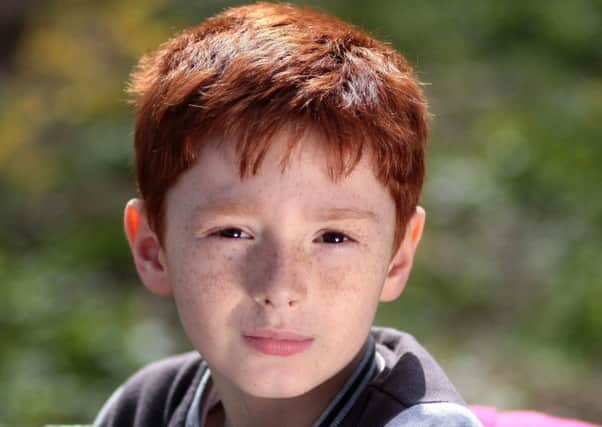Launch of '˜Tough to Talk' campaign


In 2015/16 the NSPCC-run service delivered 1,934 counselling sessions with boys across the UK compared to 11,463 with girls.
Of 934 contacts to Childline counsellors from children in Scotland, 89 were from boys in 2015/2016 compared with 498 from girls. It was not known whether the remainder were from boys or girls.
Advertisement
Hide AdAdvertisement
Hide AdNational statistics show that the UK suicide rate for boys aged 10-19 was more than double that for girls in 2015.
Childline recently launched its new ‘Tough to Talk’ campaign, backed by Manchester United and England footballer Wayne Rooney. The campaign which includes a film ‘Things Guys Don’t Talk About’, aims to empower boys to seek support for suicidal feelings.
NSPCC Ambassador for Childhood Wayne Rooney said: “Growing up in the world of football I know there can be a stigma attached to young men showing emotion and talking about their feelings. It can be seen as a weakness but the opposite is true and it takes great strength to open up and reach out for help.
“Hopefully Childline’s ‘Tough to Talk’ campaign will help young people, and boys in particular, see that they are not alone and it’s ok to speak out. They don’t need to suffer in silence. I would encourage any young person struggling with suicidal thoughts to talk to someone they trust or contact Childline.”
Advertisement
Hide AdAdvertisement
Hide AdElizabeth Clements (53), from Glasgow, tragically lost her 12 year-old son Gary when he took his own life in September 1998.
She said: “These figures really highlight how difficult boys find it to talk about their feelings. It’s vital that boys feel they can talk to someone when they need support. Childline is such an important service for young people and this campaign will show that there is someone there – they don’t have to go through it alone.
“When Gary died it was heart-breaking and devastating for the whole family. We will never know why he did it. It was a huge shock. He was loved very much.
“We really need to raise awareness of suicide to help other young people who need support.”
Advertisement
Hide AdAdvertisement
Hide AdThe boys who did get in touch with Childline talked about a wide range of issues including relationship worries, abuse, bullying, sexuality and gender identity and mental health issues alongside feeling suicidal. 12-15 year olds were most likely to be counselled about suicide.
In 20 per cent of counselling sessions where boys mentioned if they had confided in anyone else, they said it was the first time they had spoken to anybody about their suicidal thoughts or feelings.
Adam started calling Childline when he experienced suicidal feelings. He said: “I started to call Childline when I was about 14. I was nervous before I called as I didn’t know what they would say and whether they would judge me. That was my biggest worry but I knew I needed support.
“I called them and said ‘I think I need help’. They were really friendly and the more I spoke to them the easier it was.
Advertisement
Hide AdAdvertisement
Hide Ad“If it was urgent and I needed to speak to someone straight away because I was angry or felt like self-harming then I would call them. They calmed me down and gave me advice on techniques to use to stop me self-harming.”
Matt Forde, national head for NSPCC Scotland said: “Children struggling with suicidal feelings may feel alone with nobody to talk to and nowhere to turn for help. For boys in particular it can be harder to ask for help due to reluctance to talk about their feelings, but this could be stopping boys from accessing support when they most need it. We hope that by putting the spotlight on male suicide we can help boys see that they are not alone. If they can’t talk to friends or parents then Childline is here to listen to them, whenever they need us.”
Dame Esther Rantzen, president of Childline, added: “We know that boys particularly struggle to talk about their despair because they regard it as weakness to share their feelings, so we want to encourage them to speak to us on the phone, or online because we know that if they try to combat these suicidal thoughts alone, they can become overwhelmed by them, and that’s when we can lose precious young lives.
“Suicide is one of the leading causes of death for boys and young men. We need to draw attention to this growing problem, and make sure all our desperate children know that Childline is there for them, day and night.”
Children and young people can contact Childline for free, confidential support and advice, 24 hours a day on 0800 1111 or at www.childline.org.uk